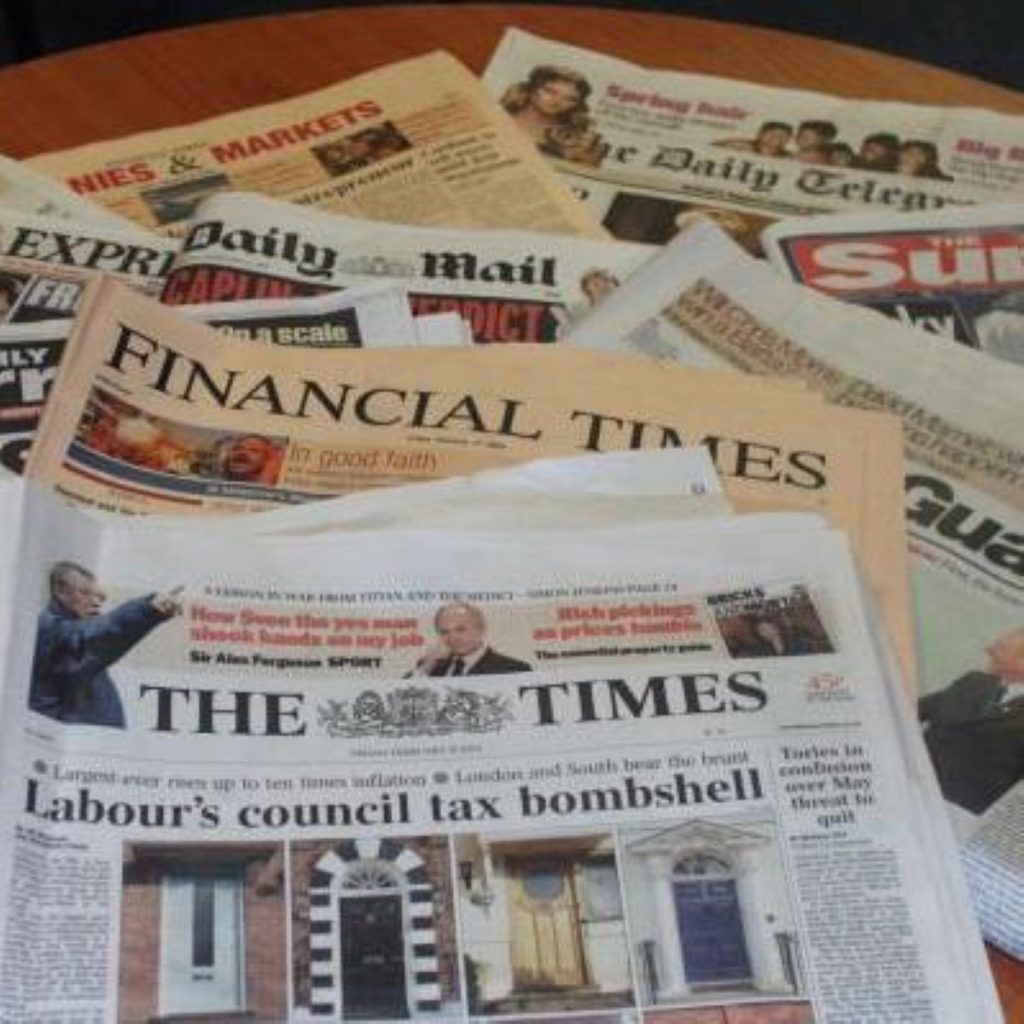Tories hope for deal ahead of Leveson royal charter vote
Conservative negotiators are hopeful a deal could be reached before Monday evening's crunch vote on press regulation.
Media secretary Maria Miller said she hoped discussions in the next 24 hours would result in agreement being reached before the vote.
Her comment sparked speculation that a consensus could be achieved before Monday evening's division, which is set to see the Tories take on a temporary alliance of Labour, the Liberal Democrats and minority parties over differing views on the form the royal charter controlling the press' regulatory body will take.
"I think there's been compromise on both sides to make sure we take the Leveson report, which was never a blueprint for the regulation of the press, and to make it work in practice," Miller said.


"What we're very clear on is statutory underpinning is neither necessary nor desirable because it would have the potential to leave us with a situation where the press wouldn't become involved in a new statutory scheme and we'd be left in a worse position."
The culture secretary's comments may not indicate a deal is actually imminent. Labour sources said they had not received overtures from the coalition's senior party.
"I hope the discussions we have over the next 24 hours can really make sure we can come together and have a real solution here," she added.
The Conservative royal charter favours handing the press a veto over appointments to the board of the regulator and giving them the ability to change the regulator's code of conduct.
But the Lib-Lab royal charter backs giving the regulator the chance to dismiss claims by third parties when it sees fit and would only give the regulator the power to suggest how newspapers apologise, rather than forcing them to do so.
'We've run out of time'
A critical Conservative rebellion over the details of the royal charter is threatening to result in David Cameron's defeat tomorrow.
A number of Tory MPs known as the 'statutories' could defy the prime minister and his whips in Monday evening's crunch vote, which will pit Labour, the Liberal Democrats and minority parties against the Conservatives.
Cameron is hoping to persuade wavering MPs who had previously called for some form of regulation of the press underpinned by statute that the Conservatives' royal charter would meet their concerns.
The prime minister cannot hope to win tomorrow's vote if a significant number of his MPs rebel. Labour has its own rebels who believe legislating against the press would undermine freedom of speech, but these are not thought sufficient in number to cancel out the potential Tory rebels.
"There are not huge differences between the party leaders, it is just that no one has been willing to make the final small concessions required to deliver a deal that would work and we have now run out of time," George Eustice, Cameron's former spin doctor and now a leading advocate of press regulation, said.
"The debate on Monday is a chance to clear the air and debate all the merits of the royal charter on the floor of the house.
"It will, at least, get the government clauses relating to exemplary damages on the statute book which is an important first step.
"But after Monday, we must redouble our efforts to get talks going again and to agree a version of the royal charter that can actually deliver Leveson."
Even if Eustice and other 'statutories' fall into line Cameron could still be defeated if the bulk of minority party and independent MPs back Labour and the Lib Dems.
Ed Miliband used an interview with the Observer to contrast his support of the solution backed by the victims of phone-hacking with Cameron, who in supporting the views of national newspapers risks being associated with phone-hacking.
"I think it is an important moment because we have had decades of failing to ensure that we have a system of press complaints and redress which means that ordinary people aren't left at the whim of a sometimes abusive press," Miliband said.
"Monday is the day that politics has got to do the duty by the victims and has got to stand up for the victims."
"Clearly Cameron didn't just wake up that morning with this. Personally, I think it looks weak not strong. The weak thing is to say that I am going to take the side of the powerful interests, against the victims' interests, and I am going to let Ed Miliband do the right thing and I can say I couldn't do anything about. I just don't think that is very smart."

